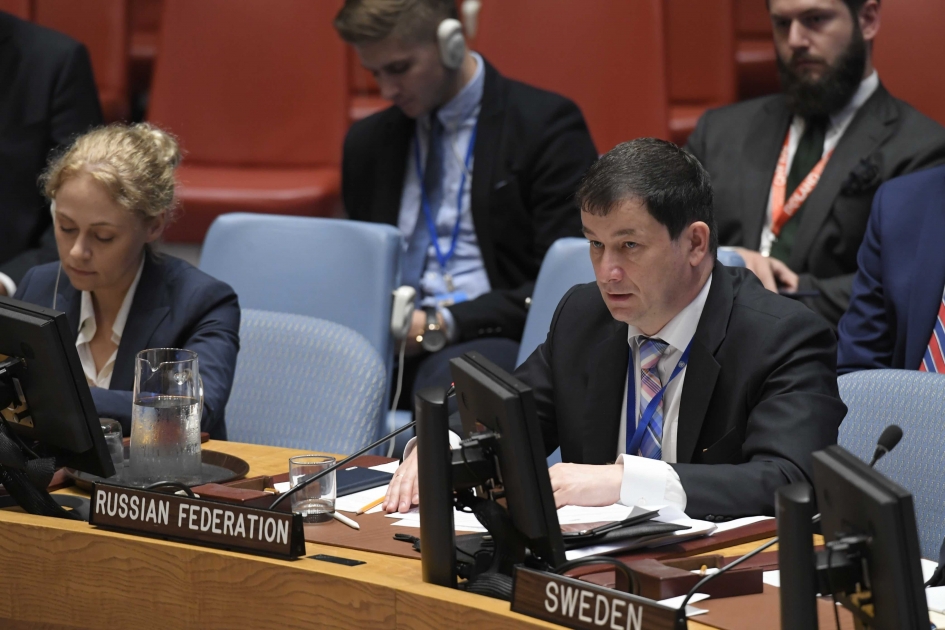Statement by Mr.Dmitry Polyanskiy, First Deputy Permanent Representative of the Russian Federation to the United Nations, at the Security Council on the sitiation in Somalia
We would like to thank today’s briefers, Mr. Michael Keating, Special Representative of the SecretaryGeneral for Somalia, Mr. Francisco Madeira, Special Representative of the Chairperson of the African Union Commission for Somalia and Head of the African Union Mission in Somalia (AMISOM), and Ms. Phumzile Mlambo-Ngcuka, Executive Director of UN-Women.
We are also very pleased to see our new Ethiopian colleague in the Chamber today. We wish him every success and are ready to work closely with him in the Council. We welcome the progress that has been made between Mogadishu and the federal states in restoring Somali statehood.
In that context, we want to particularly highlight the progress made on constitutional reform, on developing a legislative framework for holding general elections in 2020 and 2021, and the signing of an agreement on the sharing of revenues from minerals. At the same time, we urge all political players in Somalia to settle their differences exclusively by peaceful means.
We note the mediation efforts that President Farmajo has made in that regard, as well as those of the Intergovernmental Organization for Development and the Special Representative of the Secretary-General. Such efforts are particularly important considering that the challenges to security in Somalia remain very serious. The terrorist organizations Al-Shabaab and the Islamic State in Iraq and the Levant continue to conduct their subversive activities on Somali territory, and the Somali authorities still have much to do to put an end to such threats.
Effective joint efforts are particularly needed for the work of building a national security architecture. The priority here is ensuring the transfer of responsibility for the country’s security to the Somalis themselves. In that regard, we would particularly like to thank the African Union Mission in Somalia, which continues to make a huge contribution to normalizing life in Somalia. In the current circumstances, it is important not only to adapt the Mission to the changing situation on the ground but also to ensure that its reconfiguration goes hand in hand with the establishment of Somali law-enforcement structures.
We are ready to discuss the modalities of financing AMISOM from the United Nations budget. Progress in building the State and creating viable institutions of authority, especially on the social front, is no less important. The acute humanitarian challenges that the country is facing must be addressed as soon as possible. We support the calls to ensure women’s active participation in that process. The most recent developments in the region have made it possible to speak with hope for the future of the Horn of Africa.
The positive momentum that began with the normalization of relations between Ethiopia and Eritrea has spread to the entire subcontinent. We believe that the steps taken by the States of the region, including Somalia, to restore good-neighbourly relations between their peoples will ultimately bring the stability and prosperity they desire.
We wish the countries of the Horn of Africa every success along that path, and we are ready to support them in every possible way. I would also like to express my gratitude to Michael Keating for his helpful work on the Somalia dossier for the past three years. We wish him success in all his new endeavours.
